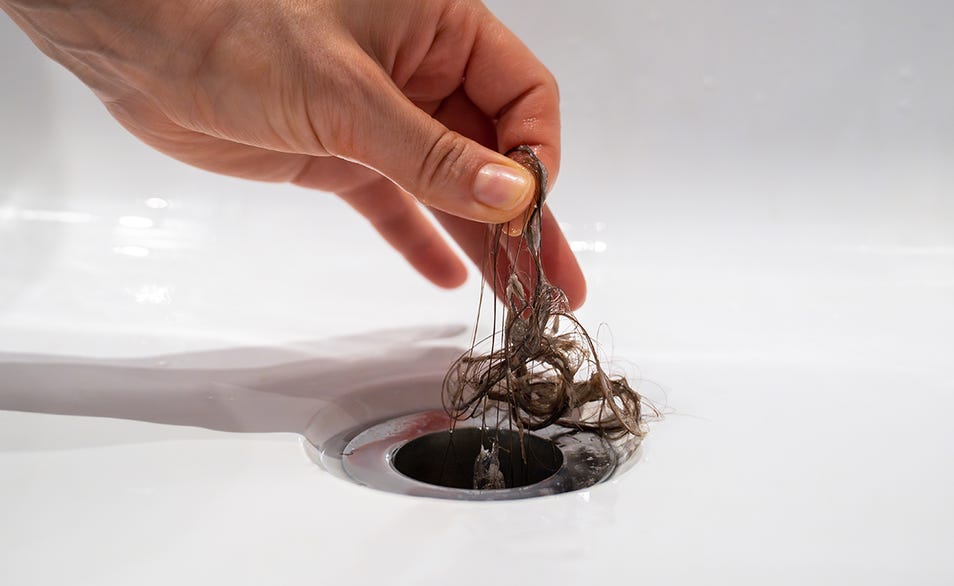How to Unblock Drains at Home | Cillit Bang UK

How to unblock drains at home
Are you tired of dealing with the inconvenience of a blocked drain in your home? Fear not, because we're here to provide our best practice on how to unblock kitchen and bathroom drains, such as clogged showers, baths, and sinks. In this blog, we'll delve into the causes of blockages, how to eliminate the issue, and tips on preventing this problem in the future. Let's dive in and discover the secrets to maintaining a smoothly flowing-drainage system in your home.
Common causes of blocked drains
You might be asking yourself, ‘why do my drains keep blocking?’ One of the primary culprits is hair—when hair accumulates, it can clog pipes and hinder water flow. Other common causes include grease and food waste, which can solidify and create stubborn blockages. Additionally, products not meant for flushing, such as sanitary products (or excessive toilet paper), can lead to blockages in the drainage system.
Detecting a blocked drain
You don’t have to do detective work! There are many keyways to spotting your drain is blocked:
- Your plug hole might be draining slower than usual.
- A smelly odour coming from the bathroom drain—this might be a result of stagnant water and debris.
- Your drain makes unusual gurgling sounds, even after the water has moved down it.
- If you notice water backing up or overflowing—this can suggest a severe blockage.
How to clean drains
Now that you’ve detected the blocked drain, it’s time to shift the build-up. There are several DIY methods which can help when clearing your pipes at home.
Method 1: Use a plunger
This tool creates suction and dislodges minor blockages. Just make sure to cover the overflow opening before plunging to maximise the pressure.
Method 2: Use a drain snake
This long flexible tool can reach deep into the drain and remove clogs. Pull it out carefully and collect any unwanted buildups (hair is a common one).
Method 3: Baking soda and vinegar
Simply pour baking soda down the drain, followed by the vinegar. Let it sit for a while before flushing it with hot water.
These example DIY methods can often resolve minor blockages and save you the cost of hiring a professional.
Unblocking your drain with Cillit Bang
An effective, quick and easy way to clear a clogged drain is with the Cillit Bang 3-in-1 Drain Unblocker Gel. This option contains a powerful formula to help tackle tough clogs, freshen pipes, and deep clean in as little as 5 minutes. It can be used for your kitchen and bathroom drains—and even works in standing water.
H3: How to clean drains with Cillit Bang Unblocker Gel:
- To remove the cap, press firmly while twisting.
- Open the bottle carefully without squeezing and pour the contents slowly down the plughole. Do not add boiling water or any other product.
- Leave for 5 minutes, but for more extreme clogs leave overnight.
- After 5 minutes, flush carefully with hot water.
Important: do not use on aluminium.
If you think the block might need extra help, the Cillit Bang 3-in-1 Drain Unblocker Kit includes a handy tool to help you loosen the clog in the pipe.
When to seek professional help with your blocked drain
If your blockage is severe, you might need to consider professional drain cleaning services. These services offer numerous benefits when it comes to tackling complex blockages. Professional plumbers have the expertise and experience to handle various types of blockages, including those in hard-to-reach areas or caused by tree roots. They also have specialised equipment such as high-pressure water jets and drain cameras, which allow them to effectively diagnose and address the root cause of the blockage.
Tips on maintaining healthy drains
To prevent any more blocked house drains, regular maintenance is key to maintaining a smoothly functioning plumbing system:
- Regularly clean your drains by pouring boiling water down them to flush away any nasties.
- Avoid pouring grease or oil down the drain, as this can solidify and cause blockages.
- Use drain screens to help catch hair and other debris before they enter the drain.
- Consider using natural remedies like baking soda and vinegar to keep your drains clean and odour-free. Alternatively, keep a drain unblocker gel in your cupboard so you have a remedy to hand, should you need it.
By following these maintenance tips you can prevent blocked drains, ensure the longevity of your plumbing system, and enjoy a clean-smelling, flowing home!
